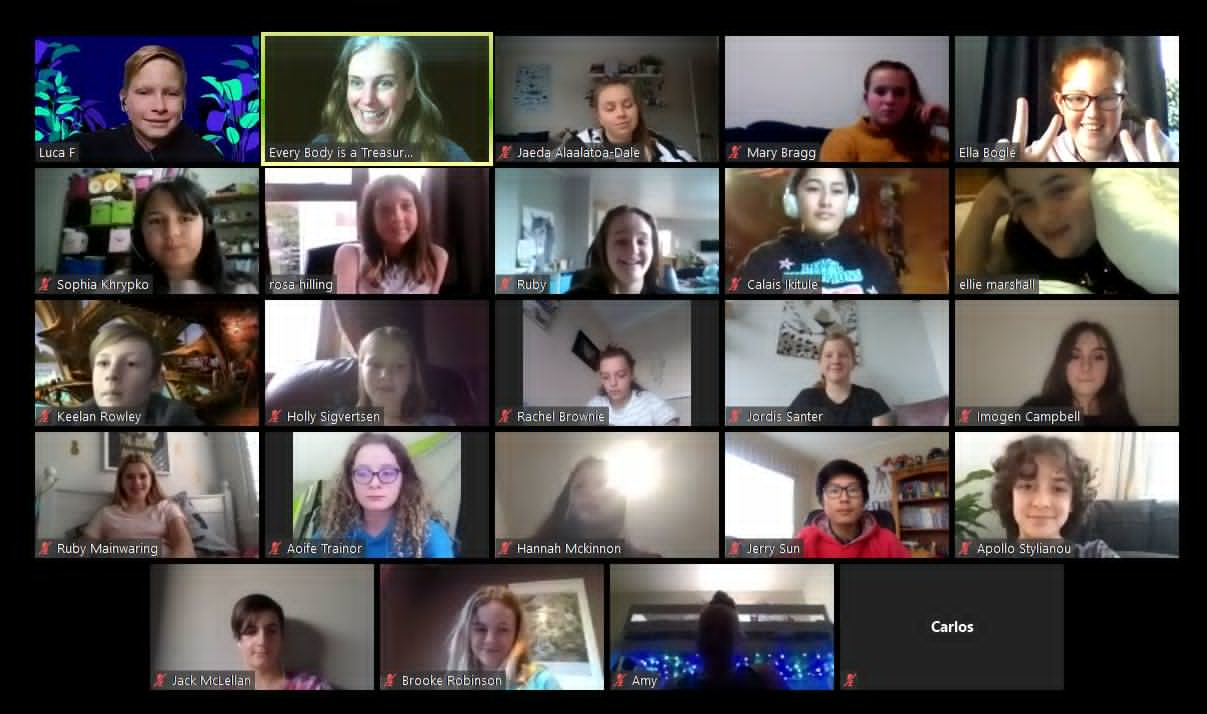Thankyou to our Sponsors enabling this project to happen
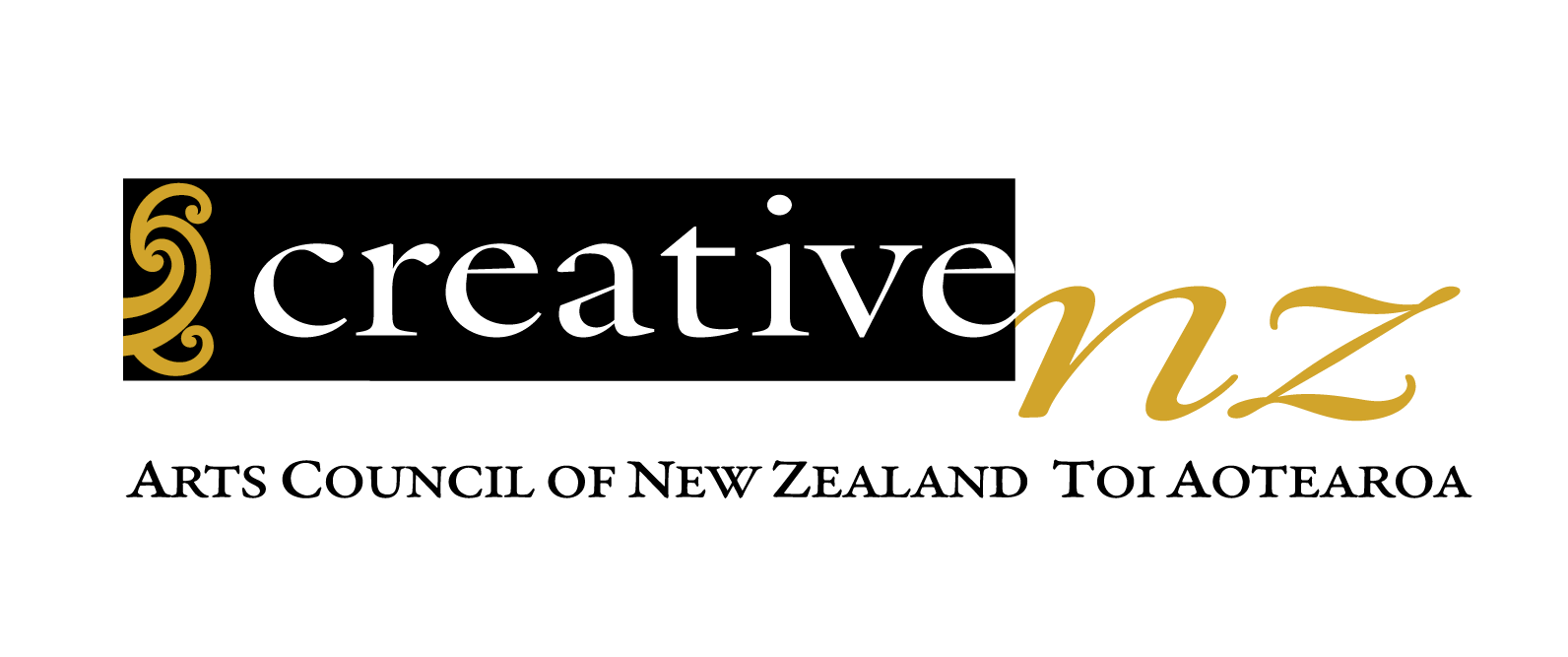
The Basics
Have students drop their images here
Some students may not wish to be identified with their images. Or you may find it simpler for them to put them in a Google folder or email them to you, and you can upload them as your library's collective contribution to the project. Each location will find their way with it. The most important thing is that they eventually get into the folder so that they get in the final video. You may find that collecting them as a library makes it easier for you to make your own exhibition because we will not be able to tease them out of our collection.
Use this for your workshops
Optional Deeper Learning and Connecting with other rainbow options
Rainbow Challenge National Chat room
Telegram is where we live online so if you would like support with your imagery or to get feedback on them, make sure sign up for the extra support
This workshop series is optional but is available for individuals to take to help them with mindful creative practices. It is designed to help you find your blocks in your creativity and support general wellbeing while at the same time making art for the exhibition. It also has creative challenges that may help you to improve your photography and art.
Answer bank to questions asked so far
Does each participant need to register for the challenge?
Nope. Only if they want to get the extra support or do the Zoom sessions as well. If they do they will get support from a master photographer and will be able to meet other rainbow students from around the country.
Is it only the winning photo that gets uploaded each week?
Please upload all of the images that the students make to the Rainbow folders to be used in the video.
However if you run competitions and feedback session the ones with the most votes can be emailed to me and I will create a Tik Tok video with the images of the week.
Do the students upload the photo or do we?
This will be up to you. Some students may not want to have their name associated with the project others will be fine with that. If they want their name associated they can put their own images in the folder.
You can have them email them to you so that you can upload them collectively.
You can have them put them in a google drive that you then upload the images or give me a link, and I can transfer them as donated non-named images to the project. Any images with faces on them will be deleted unless there is a consent form attached, however and this needs to be done officially on the official upload.
Where are the extra challenges located if we have half doing colours and half doing something else?
Those challenges are found in the one-pager facilitator guide at the top of this page.
Do we need to take the students through the big course?
No you don't. We have made a much simpler version for you to use in the libraries it is found in the one pager section at the top of this page.
Challenge Levels


Sometimes, it is fun to have a challenge. Well, the Rainbow Challenge badges are that challenge. Each time you complete a level, you can get a badge. If you gather all of the badges you will go in the draw to win a very cool prize. We haven't confirmed the prize yet. But it will be cool, we promise.
Follow this link to get your badges.
Create Monochromatic Images of all of the colours of the rainbow or focus on just the colours in the flag you identify with.


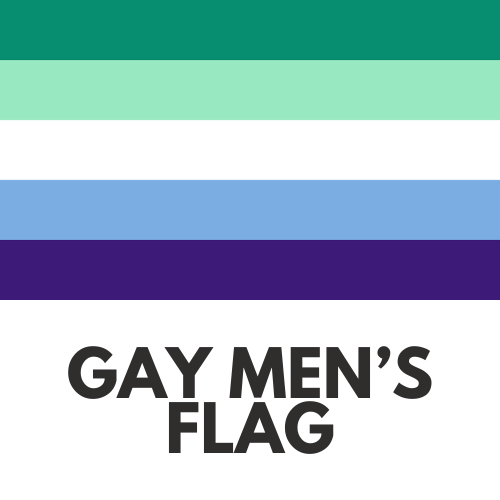






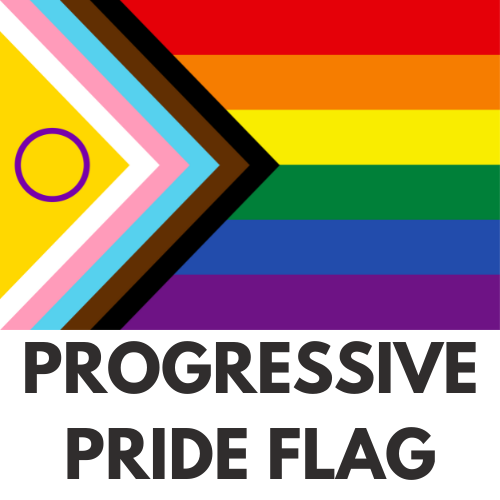

We probably missed some flags here. If we did and you would like it posted let us know.
How to turn any cool image on your camera role into a Monochromatic Image
@nzrainbowchallenge As part of the rainbow challenge im going to show you how to take a multicoloured image and turn it monochrome - just one colour. The NZ Rainbow Challenge is a collaborative Art Exhibition made up of monochromatic images created by you and other rainbow youth and allies around NZ. Our inspiration came from a young rainbow person who was concerned that Christchurch didn’t feel as rainbow friendly as Wellington. So we figured if that was the case it may be the case in other parts of New Zealand as well so we had an idea on how we can support Rainbow youth around the country. Check out our linktree https://linktr.ee/nzrainbowchallenge. #everybodyisatreasure #nzrainbowchallenge #creativenz #rainbowyouth #newzealand #everybodyisatreasuretrust #photography #tutorial ♬ original sound - clickhappy.org
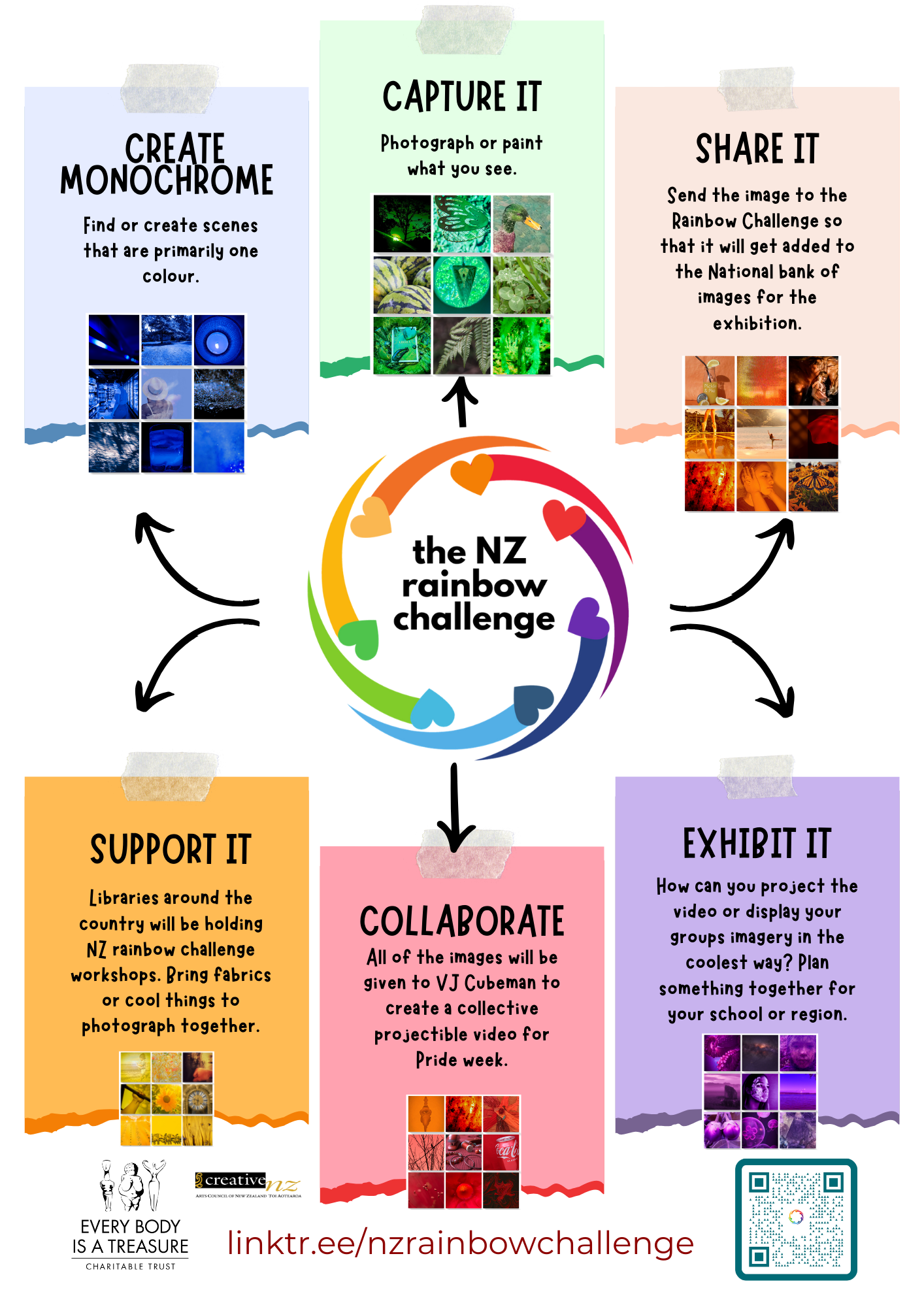
Helplines - Because sometimes it can be real real.
The following groups are really fantastic and can offer help and advice on all kinds of issues:
- The LowDown: Help on all kinds of areas to do with wellbeing. Free text: 5626 / Email: team@thelowdown.co.nz
- Youthline: All kinds of great advice on feelings and issues. Free phone: 0800 376 633 / Free text: 234
- OUTline: OUTLine is an all-ages rainbow mental health organisation providing support to the rainbow community, their friends, whānau, and those questioning. Free phone 0800 688 5463 every evening, 6pm-9pm
- Kidsline: 24/7 helpline available. Call them for advice on 0800 54 37 53 anytime.
- Common Ground: Wellbeing and advice to help you or a friend
- Aunty Dee: Helping you find a solution to the issue
- Evolve: Mental health, physical health and social support
- Special phone helplines: This page will take you to a list of special helplines for a wide range of issues, such as depression, addiction, grief and more.
- Help for the tough times: Four sites that can help.
Online bullying and digital harm
You can contact:
- Netsafe: Really useful website with a section for young people, and a confidential help team
- ICON (IN Case of Online Negativity): Great new web app to have on your phone
New Zealand Curriculum Support
Supports the Child and Youth Wellbeing Strategy
Links to the Refreshed Literacy and Communication Curriculum
-
- Express their values through generation, selection and refinement of visual imagery.
- Explore with empathy the values of others through reflection of selected images.
- Analyse values and how they are communicated through decisions made by photographers.
- Make ethical decisions about how they use cameras responsibly with respect for others.
- Express their values through generation, selection and refinement of visual imagery.
PRINCIPLES
|
The use of cell and digital photography as a drawing tool will build on and validate skills developed outside the classroom and extend them in new creative contexts. Students will be encouraged to share and reflect on their learning as they explore ways to use and extend their creative, technical and critical skills. |
|
This activity will support students to engage with their community as they generate images to communicate and share ideas, and respond to the ideas of others. |
|
This activity will provide opportunities to make links with other learning areas particularly, social sciences, English and health. |
|
A core focus of this unit is the impact of changing technology on the production of imagery, and the impact this has on personal lives, rights, privacy, and intellectual property. |
KEY COMPETENCIES
| Thinking | Students will use creative, critical, and meta-cognitive processes as they analyse images, identify relationships, interpret meanings and make meaning through their own visual images. They will use problem solving to refine and clarify ideas they wish to communicate. |
| Using language, symbols, and texts | Students will analyse visual images, discuss relationships between how images are made, what technologies are used, and their intended audience, and how they are viewed valued and interpreted. They will also investigate how contexts change over time and how this influences how images are valued and interpreted. |
| Managing self | Students will work collaboratively to develop a Phone and Photo Etiquette guidelines for using digital and cell phone technologies. They will manage their own work outside of class time, consistent with the guidelines they have established. |
| Relating to others | Students will discuss responsible use of digital and cell phone technology, and consider the feelings, privacy and intellectual property of others. |
| Participating and contributing | Students will work collaboratively and individually as they develop protocols and record images of their personal environment. They will consider how images reflect their personal, school or social context and share these images and ideas with others. |
Curriculum evaluation by Yvonne Bieleski,
DipTchg; BEd; GDipTchg(ECE);



